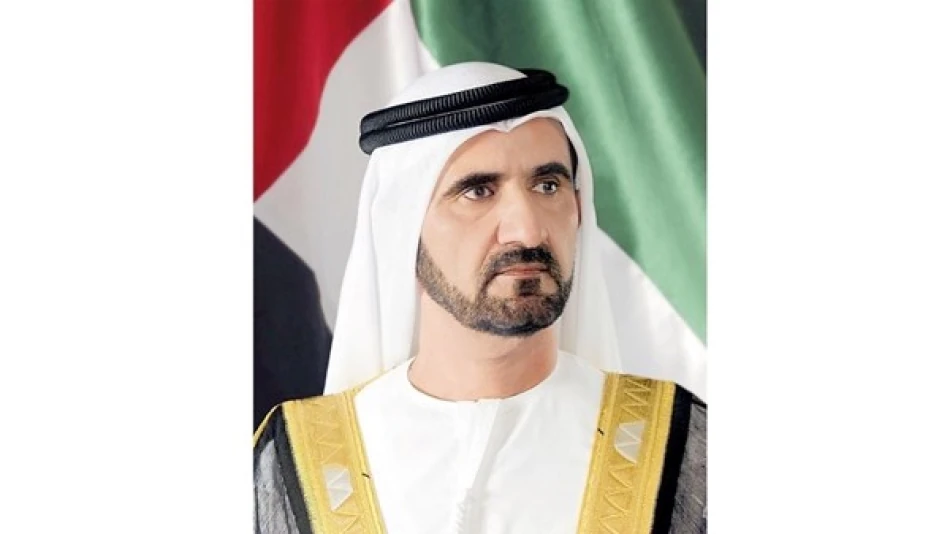
UAE Appoints Lana Nseibeh and Saeed Al Hajeri as State Ministers in Cabinet Reshuffle
UAE Appoints Two New Ministers of State in Latest Government Reshuffle
The United Arab Emirates has appointed Lana Nusseibeh and Saeed Al Hajeri as Ministers of State, marking the latest strategic move in the Gulf nation's ongoing government modernization efforts. The appointments, announced by Vice President and Prime Minister Sheikh Mohammed bin Rashid Al Maktoum following consultations with President Sheikh Mohammed bin Zayed Al Nahyan, signal continued emphasis on diversifying leadership and strengthening institutional capabilities.
Strategic Leadership Expansion
The dual appointments reflect the UAE's systematic approach to governance restructuring, a hallmark of the nation's administrative evolution over the past decade. Minister of State positions in the UAE system typically handle specialized portfolios or coordinate cross-ministerial initiatives, suggesting these appointments may target specific policy areas requiring enhanced focus.
Sheikh Mohammed bin Rashid's announcement via social media platform X emphasized collaboration with President Sheikh Mohammed bin Zayed, underscoring the coordinated decision-making process that characterizes UAE's federal structure. The message concluded with wishes for success in their "current and future tasks," hinting at expanded responsibilities ahead.
Implications for UAE's Governance Model
Institutional Strengthening
The appointments align with the UAE's broader strategy of building institutional depth across government functions. Since 2016, the country has consistently added specialized ministerial roles, including positions focused on artificial intelligence, happiness, and food security—reflecting its forward-looking policy priorities.
This expansion of the ministerial team comes as the UAE navigates complex regional dynamics while pursuing ambitious economic diversification goals outlined in the UAE Centennial 2071 vision. Additional ministerial capacity suggests preparation for managing increasingly sophisticated policy challenges.
Regional Context
The timing coincides with significant regional developments requiring enhanced diplomatic and economic coordination. As the UAE continues positioning itself as a global hub for business, technology, and diplomacy, expanded ministerial capacity provides greater bandwidth for managing multiple strategic initiatives simultaneously.
Compared to other Gulf nations, the UAE has demonstrated particular agility in adapting its governmental structure to emerging challenges, from climate change commitments to digital transformation initiatives. These appointments continue that pattern of institutional evolution.
Looking Forward
While specific portfolios for the new Ministers of State remain unspecified, their integration into the UAE's cabinet structure represents continued confidence in the country's governance model. The emphasis on both "current and future tasks" in the announcement suggests these roles may evolve as national priorities develop.
For regional observers, the appointments demonstrate the UAE's commitment to maintaining governmental agility amid rapid economic and technological change. As the nation approaches the midpoint of its Vision 2071 timeline, such leadership adjustments reflect ongoing preparation for long-term strategic objectives.
Most Viewed News

 Layla Al Mansoori
Layla Al Mansoori






